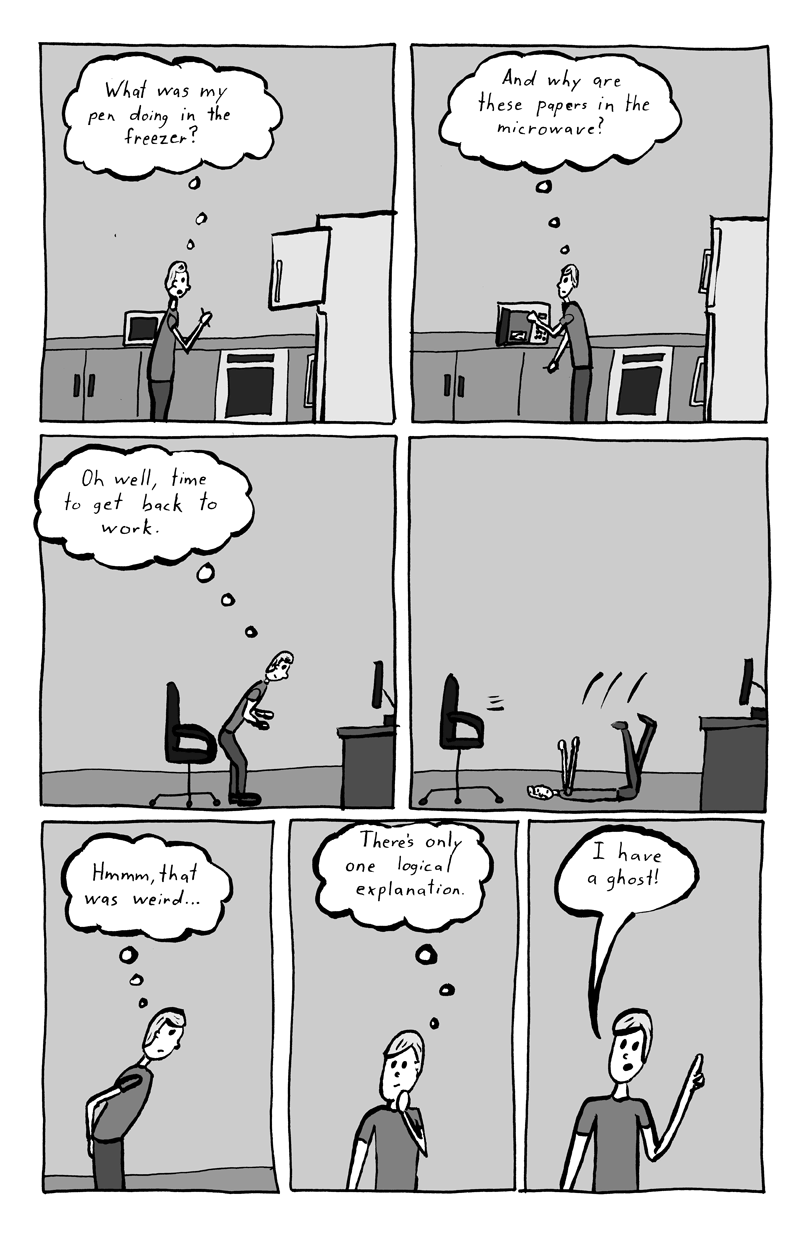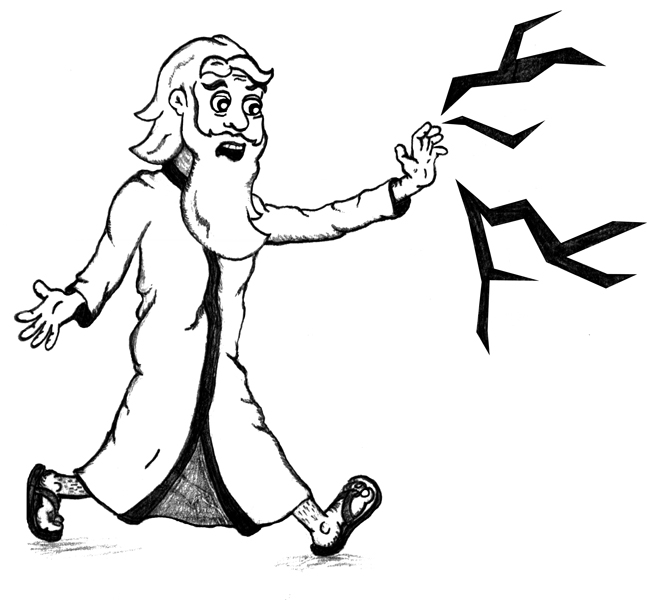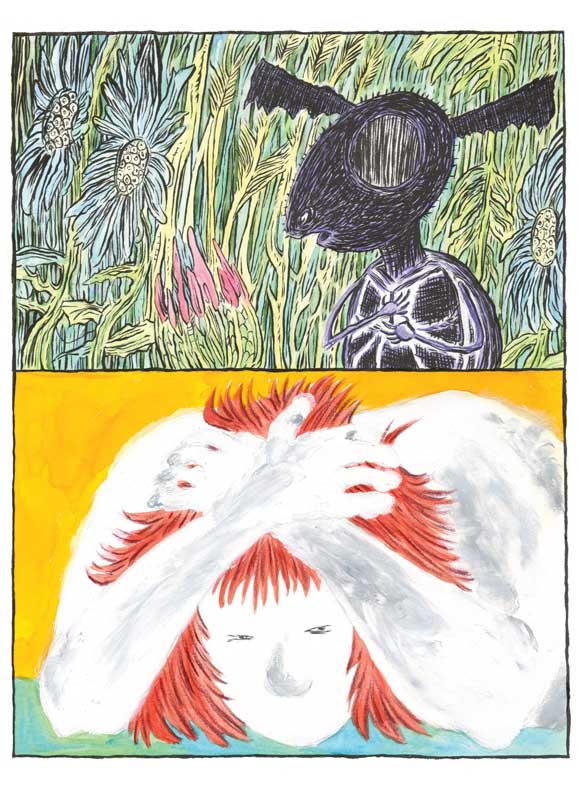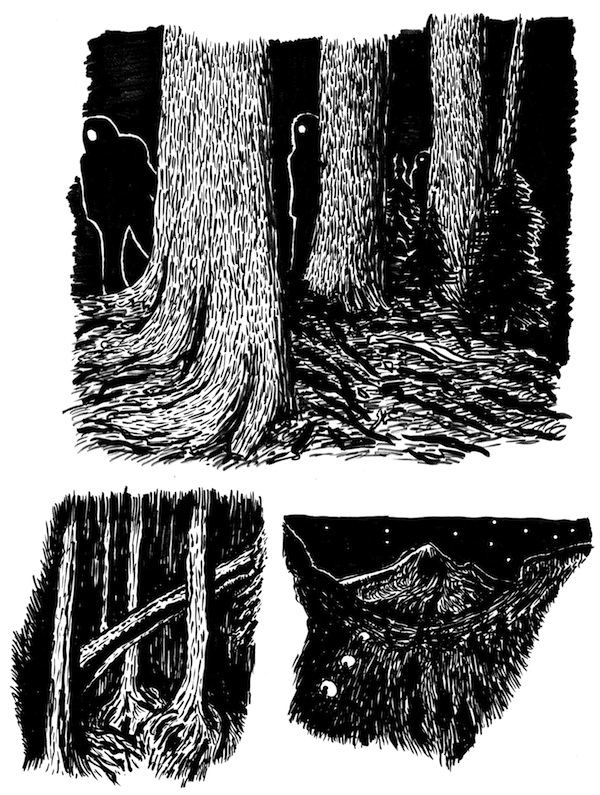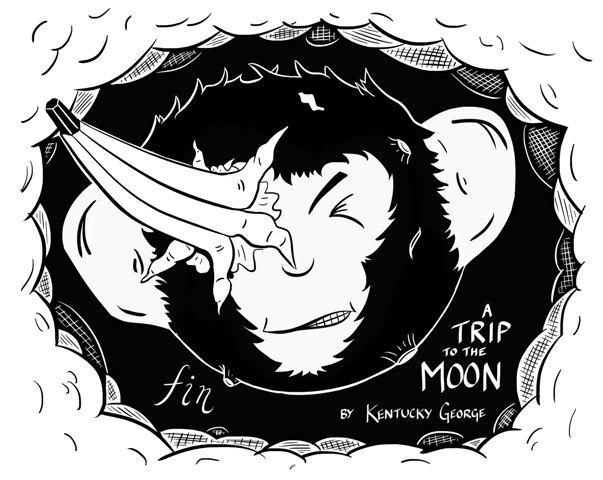 Lisa Mangum is co-editor of the anthology GAZETA: Comics from Bangkok to Belgrade; a scholar and historian of East European comics; and a contributing author of Stripovi: Contemporary Comics in Croatia in Serbia She studied animation at Evergreen and CalArts and did her graduate research on independent comics in Serbia. She currently runs a small art gallery in northwest Portland called OKO. She and Dunja Jankovic co-teach World Comics in the IPRC Comics Certificate Program.
Lisa Mangum is co-editor of the anthology GAZETA: Comics from Bangkok to Belgrade; a scholar and historian of East European comics; and a contributing author of Stripovi: Contemporary Comics in Croatia in Serbia She studied animation at Evergreen and CalArts and did her graduate research on independent comics in Serbia. She currently runs a small art gallery in northwest Portland called OKO. She and Dunja Jankovic co-teach World Comics in the IPRC Comics Certificate Program.
Why is it important for students to learn about comics from other cultures?
I think there’s a tendency for people to look at work by people who are making comics in their genre and get kind of narrow, forgetting that there are all these other amazing and rich narrative art traditions around the world, as well as huge comics traditions. My background is in writing about comics from Eastern Europe, bringing in all these different traditions and looking at how other cultures tell stories. I also look at how other comics communities exist—where they draw their aesthetics from, how they structure stories, how they publish, make festivals, and come together as a community.
I think it can be a really vital component to our local comics scene to integrate different ideas about how people are making comics. Looking at how different cultures tackle universal problems is a way to orient ourselves and inspire ourselves. For example, right now in Europe there’s a lot of really amazing cross-genre, interdisciplinary work happening, and comics are right in the thick of it with street art and music and internet art and a lot of other experimental arts. Comics are a little less ghettoized over there and are more likely to be included with other narrative arts. I think that being in touch with that way of doing things can bring a lot to the comics that we’re making here.
Tell me about the comics scene in Portland.
There’s a great scene here right now because people can build a life around their art, particularly noncommercial art, which is hard to do in other cities. Over the past ten years or so you’ve seen a lot of people flock to Portland, and a comics community has developed that’s super creative and really supportive, especially of nontraditional comics, avant garde comics, art comics, experimental comics, whatever you want to call them. We’ve got great comics shops, awesome independent printers, galleries, and showplaces, and the IPRC is right in the center of all that.
I feel like so many people who are doing important, interesting comics and who have made a name for themselves in comics are connected with the IPRC. They started publishing there; they do their work there; they hang out there on the weekends. It’s just become this crucial element in helping people to bridge that gap between “I have an idea†and getting their work out there.
What makes the IPRC program different from other comics study programs?
I think the comics program at the IPRC is unique because it’s really geared toward making your own work, developing your individual voice, and self-publishing. It’s not about building a portfolio to do graphic design work to become part of the industry. It’s about making work that’s true to yourself, your vision, and doing all the steps yourself, and becoming part of a great community in the process. (Scroll down to see examples of student work.)
It’s also much more accessible to people. Compared with a traditional MFA program, it’s a fraction of the cost. It’s an option available for people who might work during the day or go to a different school or who have families. Similarly, the debt that’s incurred by doing a traditional MFA program morally compels the school to direct their students towards making commercial work. In such programs, students might find themselves being urged to stick with one recognizable “brandable†style or discouraged from doing work that isn’t sellable in one way or another. At the IPRC, however, it’s all about experimentation and play and the process, and not about profit. While there are many folks in this community who manage to live off of their comics and art, the truth is that indie comics are not lucrative—the payoff comes in other ways, like meeting amazing folks and getting your art out there, and traveling to festivals.
What do you like about teaching in the program?
I’ve loved meeting so many amazing students and watching them develop as artists. The level of self-motivation is remarkable, and the DIY culture has a lot to do with that, too.
This program is simply not like a normal school. The students and instructors inevitably end up hanging out at comics events and around the IPRC, and often it’s resulted in working together on projects. Dunja and I make ourselves available to talk with students anytime about their work, even after the term has ended. I just helped edit a manuscript from a student from last year’s program, and I worked with another former student in putting together a show of her work. I feel really fortunate to be a part of the community at the IPRC because of everybody involved—from everyone in the organization and all of the students in the program. Everybody’s really supportive and inspiring.
What can people get out of the program?
I think the IPRC works well for people who aren’t trying to do this as a big commercial enterprise. It’s for people who have a DIY ethic, who are coming at it with a punk approach, who want to make their own work. They’re people with a strong artistic vision and a strong voice and who want to put that out into the world.
The program is really about providing a framework and a supportive system for people to hone their own voice and make their work stronger. I think all of the different instructors and the classmates are really there to help everyone go deeper into their own work, every step of the way—from making the work to publishing it yourself, printing it, binding it, going to festivals, getting involved in comics events around town.
Our goal is to inspire you, to expose you to a bunch of new work and techniques, and also to take the mystery out of the technical stuff like printing and publishing. The program takes you through every step of the process, like how to interact with printers, how to do your own letterpress and screenprinting and professional bindery, how to get things into distribution and participate in festivals. The program enables you to do all of that stuff that’s typically behind a veil of secrecy.
Work by 2010-2011 and 2011-2012 Certificate Program students:
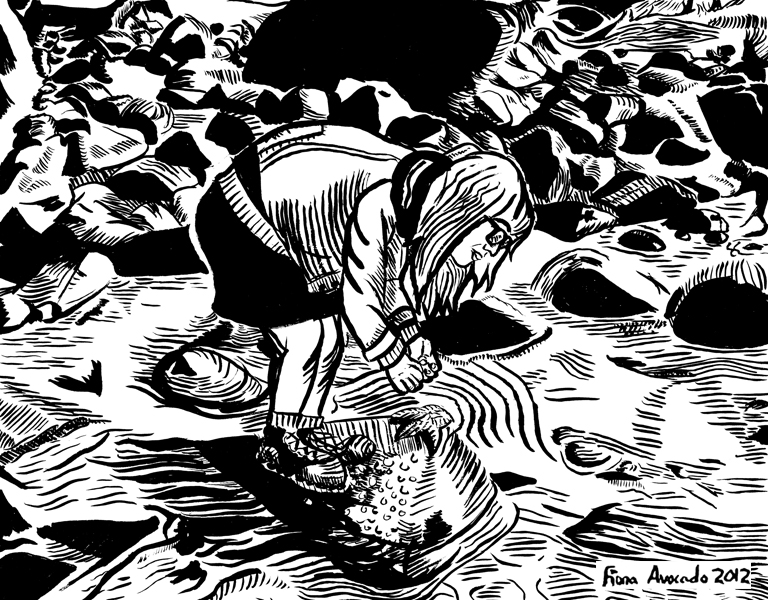
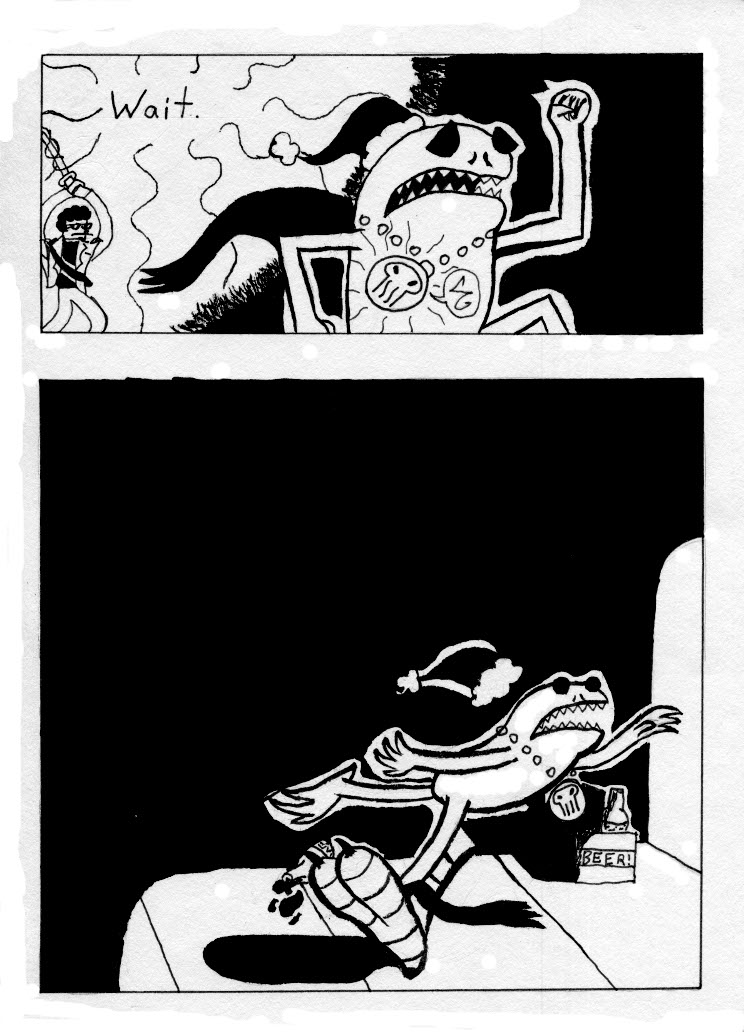
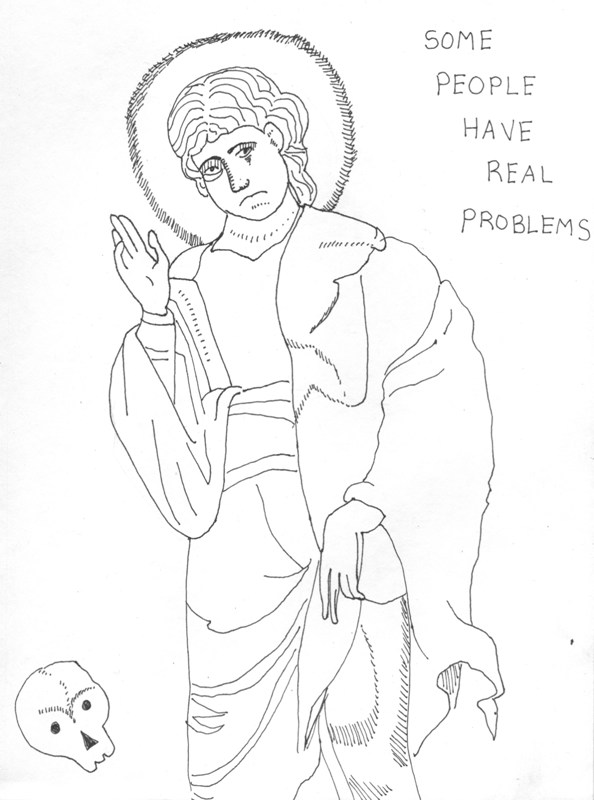
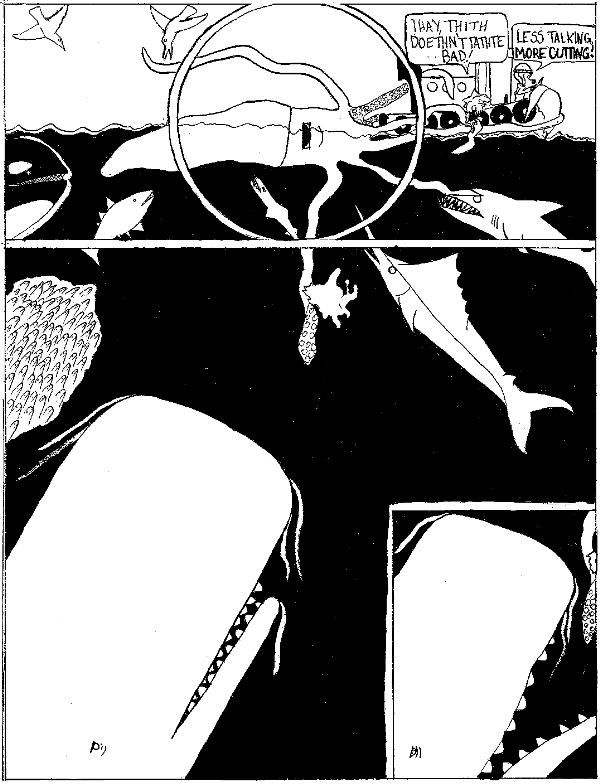
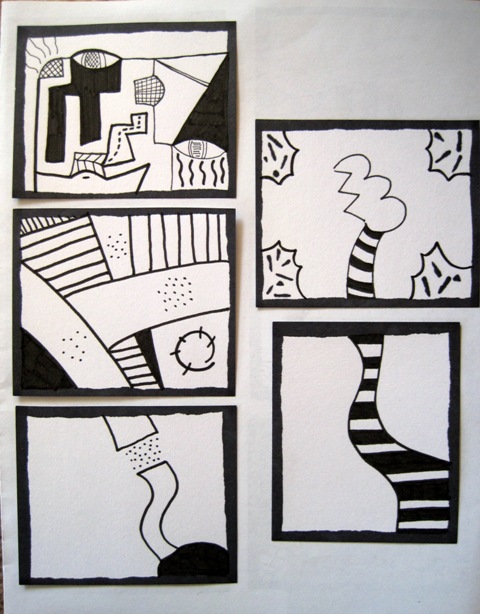
Lisa was interviewed by Amy Souza, a student in the Comics Certificate Program.

